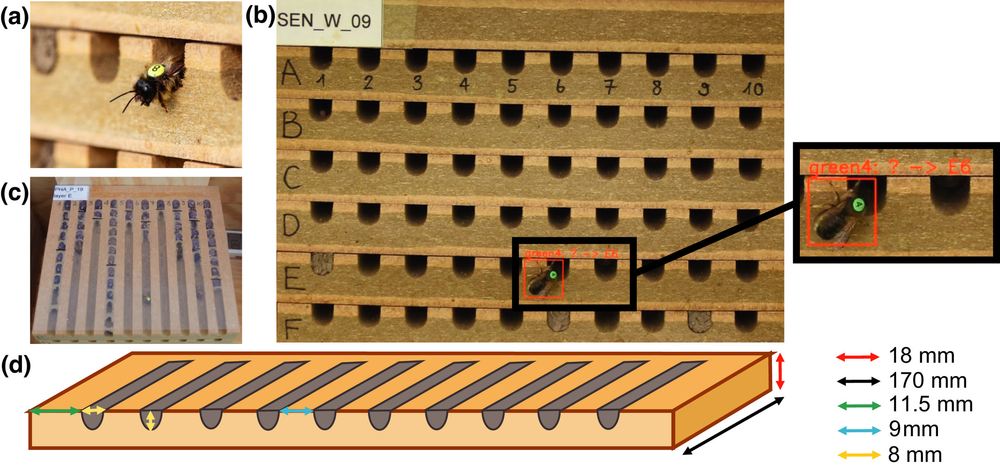pan-european assessment, monitoring, and mitigation of stressors on the health of bees
New automated tool for assessing behavioural aspects of cavity-nesting solitary bees
A recent article developed in the framework of PoshBee and published in the Ecology and Evolution open access journal presents a novel automated approach for the assessment of nesting and foraging performance of cavity-nesting solitary bees.
Such assessment is essential because it provides valuable information on bee health and is thus relevant for the impact evaluation of environmental stressors. Nevertheless, the effect of different stressors varies between species and depends on traits such as body size and mode of nesting. Risk assessment is therefore increasingly monitoring different types of bee species, such as a range of solitary bees. So far, the collection of behavioural data in solitary bee species, however, has depended on very time-consuming procedures like direct observations because there is no available monitoring tool, which can automatically record data.
With the hope to contribute to a more accurate and in-depth study of these behavioural aspects of solitary bees – crucial for the protection of wild pollinators and pollination services – PoshBee researchers developed an open-source machine learning-based video analysis software called Bee Tracker. This tool automatically extracts and analyses large amounts of data on the foraging and nesting behaviour of individually marked bees from videos. It identifies individual nesting females and assigns them to their nests, collecting information, such as reproductive success and flight duration.

Automated Bee Tracker tool.
This free and open-source software is provided with the underlying Python code and a user manual, allowing stakeholders with no programming background to utilise the tool. Bee Tracker’s precision exceeds the typical precision values from automated image analysis softwares and reaches standard values for bee counters – researchers showed that a 96% precision can be achieved with a relatively low amount of working hours.
PoshBee scientists hope that this new tool can improve the collection of robust data on individual nesting and foraging behaviour of cavity-nesting solitary bees, which is otherwise time-consuming and hampers research and environmental risk assessment.
Read the full article here.
The article is also available in PoshBee’s Open Science Collection in the Research Ideas and Outcomes (RIO) journal here.